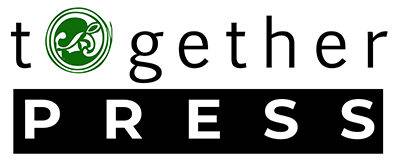Father’s meeting with Everleigh Blandell-Collins sets a quiet, yet disturbing scene for collapse. While Finn had given a rundown of some of the stages of collapse in the previous chapter, it’s a distant thing, he repeats the words given to him, he has no direct experience. Father provides the brutal reality.
Even those with good intentions will be put in situations where none of the options are good and yet a choice must be made and lived with. Where even the rich cannot use their wealth to protect themselves. Dying, starving and alone is a fate reserved not just for the underprivileged. The surreal scene strips away civilisation and shows the bones beneath.
Everleigh has accepted her death, bequeathing her bones to the Tasmanian Devils and to being a part of the cycle of life. The living feed from the dead. A horror theme of our culture. But a normal and natural part of life. The basis of it. Many years later a group of young men will discover her remains and unknowingly continue her quest to keep the endangered species alive. The theme of life and death repeats throughout the book.
There’s a parallel between this chapter and later in Chapter 40. When Father leaves Everleigh he pauses to appreciate the beauty of the bark of a burnt tree reflecting the sunset and wonders if there’s a German word for it. He’s torn about leaving the clearing, but has already made the decision to do so, yet he stops to think of a word. He’s gathering himself, and he uses his affinity with language to do so. Later, when he and Finn are walking up to Alan & Christine’s house, Father does the same thing. It’s also a tree-related word. In the man-made forest he tries to recall the word for how they line up in rows and as you move past you can see the rows change alignment, diagonal rather than perpendicular? I still don’t know if there’s a word for this, and would love to know. But again, he’s trying to quiet the mental turbulence. A mirror moment.
The state of Everleigh’s ruined feet is motivation for Father to start his shoe ‘feetish’, a calculated measure to keep them safe, not just a barrier between feet and thorns, but the mental barrier between safety and danger. Father’s shoes are Buttercup’s buttons.
Piper has her share of regrets too. Dan, but also the maître-de in a posh restaurant. She hides behind the story, telling it as though it’s someone elses, Lulu’s. David (Father), knows this, but clearly had not the heart to tell her he could see through the deception. Hers was not an active decision to have a man killed, but the naivety of repeating a story that would cause his death.
Again Father’s forced into acting contrary to his nature when Dan and the Unknown Man enter their property, armed, and as he says, By their stealth they marked their deeds. Piper’s drawn into the fray, killing Dan with the most prosaic of weapons, a garden spade. Discovering, soon after, the watch with the inscription, To Dan, Love Nan. This marks the point in which Piper, having made a choice between watching David die, or defending him, makes the decision that breaks her. It’s an incredible luxury we have, to choose to be pacifists or not. One we take for granted.
There’s also another theme or message that runs through this chapter.
When we made the leap, the only skill I had was the ability to acquire skills. And I did. From never having grown a radish, to growing the majority of our food, recycling recycled materials infinite numbers of times, with few tools, and a willingness to make things which looked ugly. And of course, my persistent moccasin making endeavours. Pg 108
It’s going to be important to have useful skills. Something Hog was well aware of too.Today people are getting into growing some of their food there are so many more we need to relearn. As a species we’ve lost generalism, relying on others to fill the gaps, it makes us vulnerable as a species.
Father talks about the fear of things watching from the trees, how fear of other people dominates his thoughts, and when he goes to throw himself in the pyre of his burning house, he’s saved from himself by strangers.
I didn’t tell him how I lost control of my senses and knew madness. How the group had been there when I fell and were unjudgmental in their support. Nor did I tell him how it was their kindness that maddened me. I’d feared other humans for so long, they’d become akin to a snake in the grass. Fear held tight too long calcifies, and it was of me, not just in me. But when I fell, it was into their arms and they held me. I was at the most vulnerable of moments. They’d snatched me from the emptiness, and I couldn’t decide if I loved or hated them for it.
I only told him I’d cracked like an egg. (293-94)
Finn describes his mother’s death. Later, Father recounts the moment too. And while the details are the same, the nuances of how they saw each other’s response to her death are different, particularly Father’s complex grief/guilt for feeling relief she will no longer be a burden, the practicality of knowing her death increased their chances of living.
Father mentions the peacock blue cushion she died on, Piper’s favourite. Later in the book Finn mentions the same pillow – but in the context of it being his father’s favourite. Another glimpse into Father’s enduring love for her.






